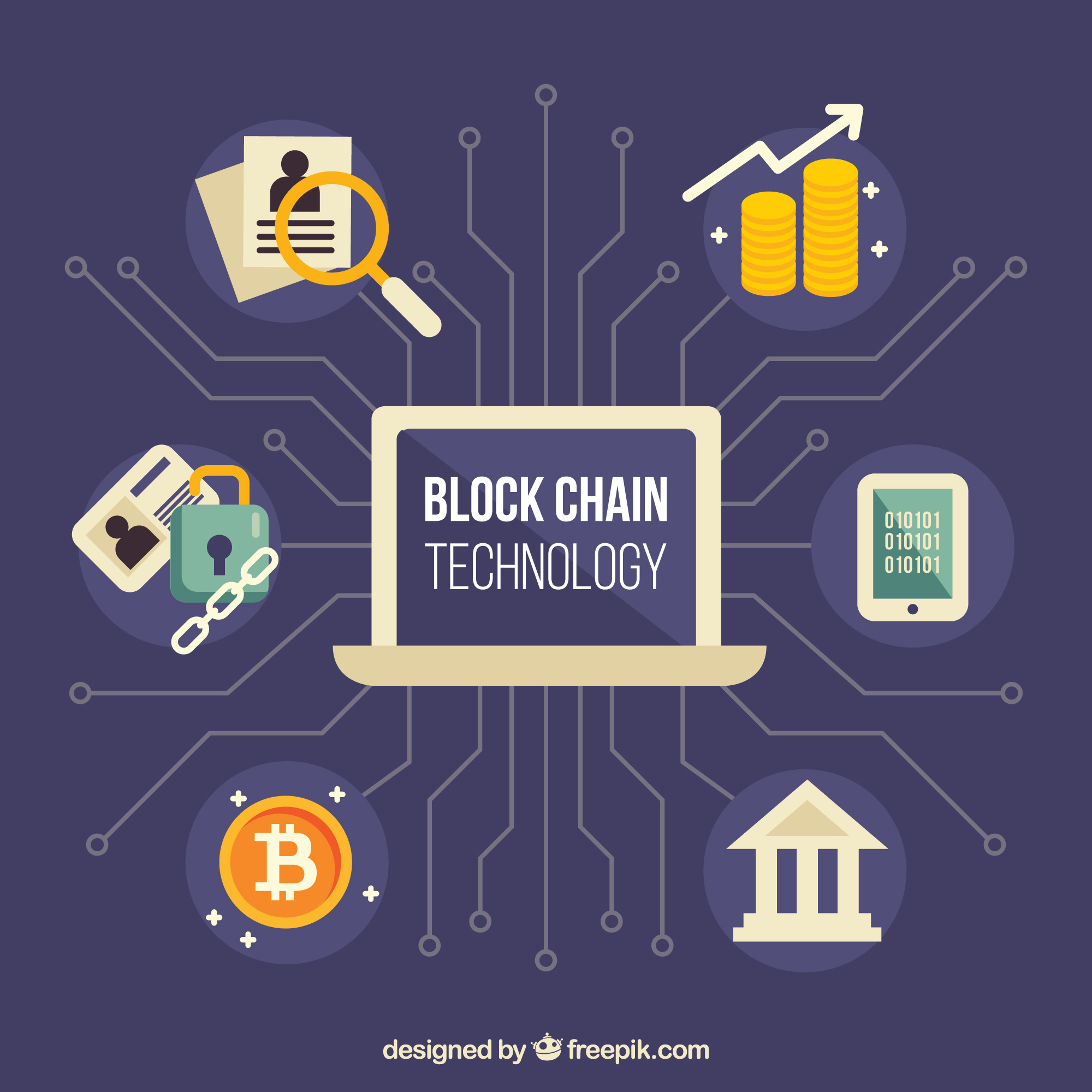Introduction
Suppose a world in which transactions have been made safe, clear, and secure, A future in which trust is no longer a requirement, instead of the result of an innovative system, This is the world that blockchain technology promises, and it is fast approaching.
Blockchain is basically an online ledger system. This represents it is a shared database that is not managed by a single organization. Instead, it is duplicated over a network of computers, each containing a copy of the data. This makes it nearly impossible to do anything with the data because any modifications must be made to all copies of the ledger.
But blockchain’s is far more than a simply secure database. It is a platform for tracking and verifying all types of transactions, including financial transactions, supply chain movements, and voting records. This makes it extremely adaptable, with the capability to change many different sectors.
1. What is Blockchain?
Blockchain is an open, distributed ledger system that the securely records transactions via a network of computers.
Unlike previous centrally controlled systems, blockchain’s uses encryption principles and agreement procedures that guarantee openness, stability, and privacy.

2. Pros and cons of Blockchain
Pros of Blockchain:
1. Decentralized operations: Blockchain functions on a decentralized network, which minimizes dependency on a central authority while increasing security.
2. Unchangeable Records: Once added to the blockchain, data cannot be changed or removed, resulting in a secure and transparent ledger.
3. Smart Agreements: When specific requirements are satisfied, smart agreements run automatically, allowing for more secure and effective transactions.
4. Transparency: Everyone in a blockchain network has access to the same information, which promotes transparency and accountability.
5. Security: Blockchain uses cryptographic methods to protect data, which makes it highly resistant to scams and hacker efforts.
6. Fewer Gatekeepers: Transactions on the blockchain can take place directly between participants, eliminating brokers and saving expenses.
7. Global Accessibility: Blockchain is not limited by geographical boundaries, allowing for smooth international transactions and access to money.
Cons of Blockchain:
1. Scalability Issues: As the size of the blockchain increases, scalability becomes a cause for worry, which may result in slower transaction processing.
2. Energy Consumption: Certain blockchain networks, especially those that use proof-of-work an agreement, consume a lot of energy, which raises environmental issues.
3. Lack of Control: In some businesses, a lack of clear rules can lead to legal confusion and restrict general acceptance.
4. Complexity of Integration: Integrating blockchain into existing systems can be time-consuming and costly, requiring adjustments to existing corporate procedures.
5. Irreversibility: While immutability is a goodwill, it may also be a disadvantage because errors or criminal behaviors cannot be easily reversed once recorded on the blockchain.
6. Educational Challenge: Understanding blockchain technology requires a certain amount of technical knowledge, which may provide an obstacle to access for some individuals and enterprises.
7. Misuse Risk: The fake character of transactions on some blockchains may attract illegal activity, creating questions about regulatory compliance and ethical use.
3. Applications of Blockchain
1. Cryptocurrency: Bitcoin is the most popular application one of this technology.
2. Smart Contracts: This technology has the ability to automate legal agreements and eliminate the need for brokers.
3. In the field of Supply Chain Management: This technology may enable transparent and safe tracking of products.
4. When it comes to voting systems: This technology can provide a safe and transparent platform, reducing the possibility of criminal activity.
5. Additionally, for Identity Verification: This technology can provide a safe and decentralized mechanism for managing digital identities.
6. In healthcare: blockchain technology can ensure that patient records are safely maintained and exchanged.
7. Finally, in real estate: the application of blockchain technology can transform transactions by reducing fraud and increasing efficiency.

4. Will Blockchain be in demand in future?
Yes, blockchain technology will continue to be in high demand in the future. Here are some reasons why.
1. Improved Security: Blockchain technology has been designed to give more protection against hacking and other types of cyber-attacks.
Encryption techniques and the distribution of data across various platforms actively reduce information theft and prevent unwanted access.
2. Decentralized Finance (DeFi): Blockchain has the potential to revolutionize the financial sector by eliminating the need for traditional financial intermediaries.
Decentralized financial systems allow for more efficient and secure transactions, modifying the way we do business.
3. Supply Chain Management: Blockchain technology’s openness and ability to track have the potential to dramatically improve supply chain management.
It might allow real-time tracking of goods and supplies, lowering the risk of loss and fraud while increasing overall supply chain efficiency.
4. Digital Voting Systems: This technology could provide transparent and secure digital voting systems.
Recording votes on a tamper-proof blockchain ledger could reduce the danger of election fraud and improve trust in the election system.
5. Health Records Management: Blockchain’s safe and decentralised structure has the potential to transform patient data storage and access.
It might provide a safe platform for keeping health records while also allowing for quick access and spread between healthcare professionals.
6. Copyright and Ownership surveillance: In the digital content sector, blockchain has the potential for easing copyright and ownership monitoring.
It might assist in protecting authors’ rights by producing a visible and immutable record of ownership, as well as simplify the licensing and distribution processes.
7. Internet of Things (IoT): By enabling a secure and decentralized network, blockchain could improve the security and efficiency of IoT devices.
This could result in more stable and secure device connections, making the Internet of Things (IoT) system safer and more strong.
8. Real Estate Transactions: By providing a transparent and immutable record of property transactions, blockchain could simplify the buying and selling process while also reducing theft.
This could lead to a more efficient real estate market and higher confidence among participants.
9. Energy Sector: Blockchain technology could enable peer-to-peer energy trading.
This could lead to more efficient energy markets in which consumers can sell extra energy to other consumers, resulting in a more resilient and environmentally friendly energy system.
10. Education: Blockchain technology has the potential to significantly improve the safe and open verification of academic qualifications.
Putting academic records on a blockchain could give a reliable and secure record of a person’s academic achievements.
conclusion
Finally, the future demand for blockchain’s technology is strong, due to the technology’s revolutionary possibilities throughout a wide range of businesses.
Given obstacles such as scalability and energy consumption, blockchain’s key characteristics—enhanced security, decentralization, transparency, and immutability—make it a force for change.
Its applications include bitcoin, digital contracts, supply chain management, voting systems, healthcare, and more, showing its adaptability as well as positive impact.
Improved security measures, the emergence of decentralized finance, and harmful applications in real estate, energy, and education all help to maintain demand. As blockchain’s evolves, overcoming problems will be critical to gaining more support.
However, evidence indicates that blockchain’s will continue to be an important technology, redefining how transactions, data management, and interactions take place in the future digital landscape.
Previous blog entries
1. How AI and IoT Impact Daily Life
3. Advantages and disadvantages of humanoid robots
4. Why are robots better at doing repetitive tasks than humans?
5. How Artificial Intelligence is Transforming Healthcare
6. What is the difference between GenAI and AGI?
7. Where are articulated robots used the most?
9. what is Artificial Intelligence and Data Science






1 thought on “Will Blockchain be in demand in future?”